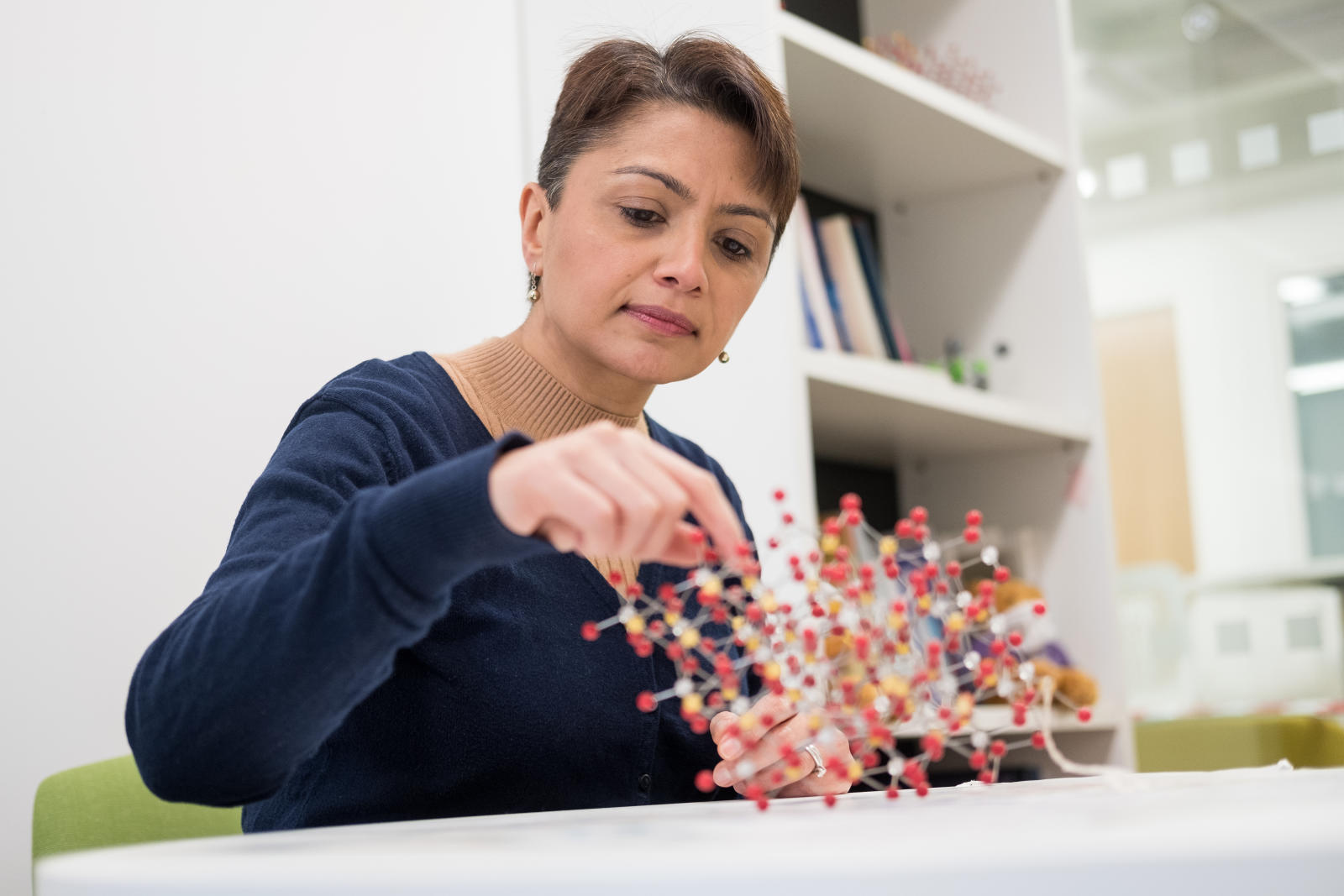“What is clear is that there’s a pipeline from higher education to working in science, that’s either leaky or blocked, and we need to figure out what's going on to improve academia.”
Dr Pooja Goddard, a Royal Academy of Engineering Industry Fellow and Senior Lecturer in Chemistry, is the latest guest on Cuppa with a Scientist.
The Director of Equality and Diversity in the School of Science wraps up season one of the podcast by discussing increasing diversity in science and higher education, and where issues seem to lie.
“Schools have done a great job in uplifting diversity and becoming more accessible, so the numbers are looking good in that sense”, said Dr Goddard.
“But if we look closely at the data, we don’t have many students taking on science subjects at postgraduate level that are from black and minority ethnic groups, or the LGBT+ community, or students with disabilities.
“Another issue is the attainment gap for students from minority groups when they leave higher education.
“These students are coming to university with the same grades as every other student, but they are not leaving with lower grades.
“Then if you look at the number of then people going into academia high paid jobs you see another drop from underrepresented groups.
“It is very clear that we need to do more to support underrepresented groups and make academia an attractive prospect for them.”
Dr Goddard expresses her worry that there may be cultural factors that still pose as a barrier to entry in some subjects, positions, and areas of work.
She mentions microaggressions as one of the obstacles minority groups encounter and shared her own experiences on the podcast.
“Once I started climbing the ladder, I started to speak my mind a little bit”, said Dr Goddard.
“My confidence was growing, and I didn't fit with the status quo. So, I was sort of challenging leadership and challenging decision-making processes, and then I started to face microaggressions.
“And this isn’t unusual, many people from minority groups are fighting big battles and constant microaggressions.
“And it's difficult to keep them going because at some point the energy will drain off, and they'll either leave where they are working or move into a different career path, or just burn out completely.”
Dr Goddard says the road to improving diversity in science and higher education is a long one, but there are simple steps that can be taken now to improve the landscape.
“We need to value the people we have and give people from minority groups the space and the time to share their lived experiences, talk to senior management, and talk to allies.
“And on an individual level, we need to be open to change and learning.
“I'm always learning. I don't have all the answers just because I'm brown and I'm female. I'm learning constantly.
“I believe inclusivity is about recognising the importance of every individual in shaping the success of an institution. Recognition and acceptance empowers people to believe they can achieve the unimaginable.”
On the Cuppa with a Scientist episode, Dr Goddard also discussed her childhood on the foothills of Mount Kenya, her academic journey, and research projects she is working on.
The episode can be watched in full by clicking the YouTube video below:
Or if you prefer to listen to your podcasts, you can do so here:
‘Cuppa with a Scientist’ is a podcast series launched by the Loughborough University PR team that aims to inspire the next generation of scientists and dispel the myth that all scientists wear white lab coats. Read more about it here.
The season finale ties in with the University’s PR team campaign that is shining a light on research and expertise that is improving and enhancing the lives of children and young people. Keep an eye out on Twitter and TikTok for the latest Children and Young People campaign news by searching #LboroExperts. Or visit the Media Centre for the latest campaign and University news.

